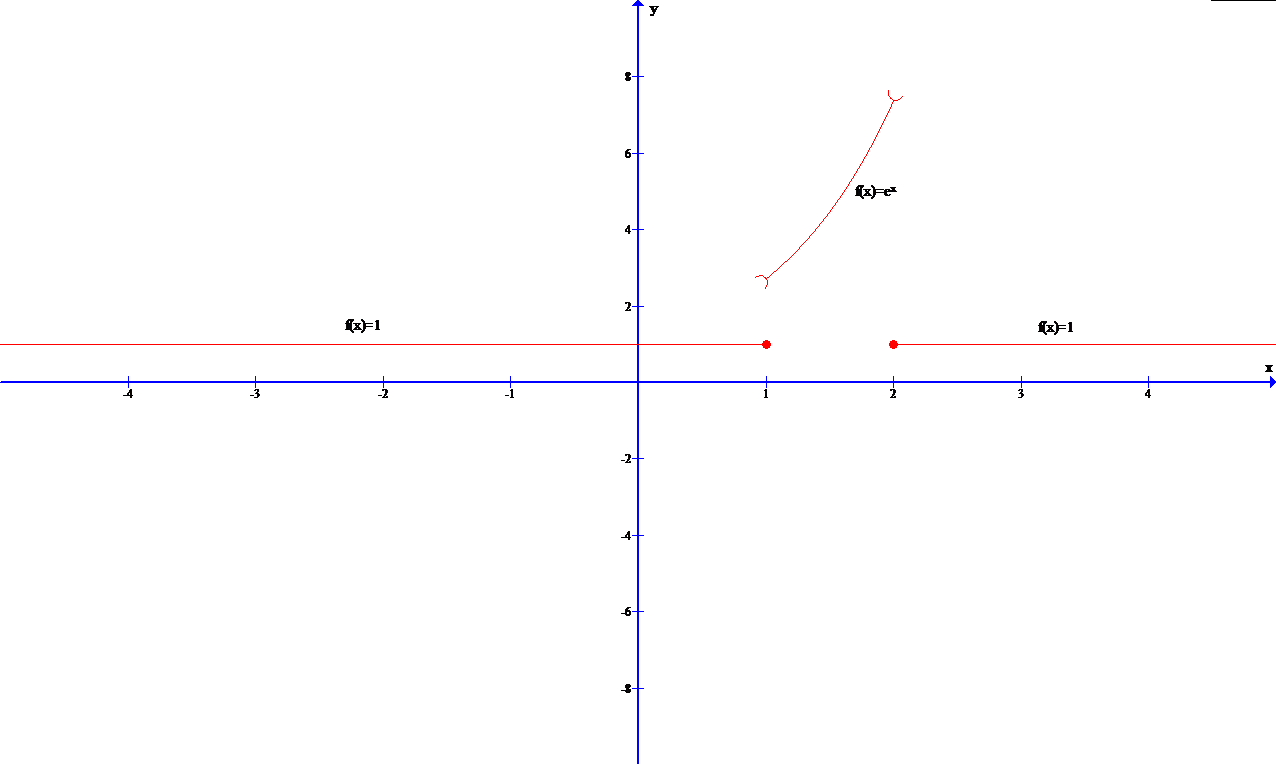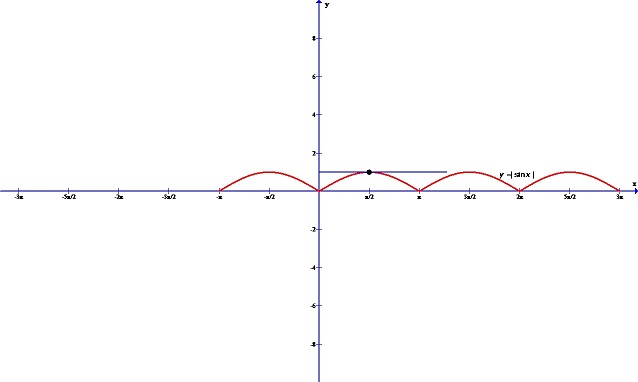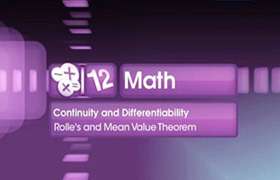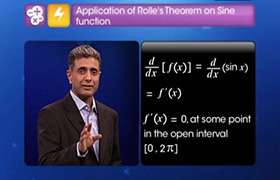CBSE Class 12-science Answered
1) why f(x) is continuous only for Closed interval [a, b] ?
2) why f(x) is differentiable only for open interval (a, b) why not for closed interval ?
( these questions r related to condition for rolle's theorem n LMVT )
Plz explain in detail
Asked by Ritusha Kulkarni | 09 Jul, 2015, 07:27: PM
(1) Continuity at end points is necessary for rolle's theorem to be valid.
Let us see one example where a function is not continuous at end points of an interval.

For the above function f(x)=1 for x< or equal to 1
f(x)=ex for 1<x<2
f(x)=1 for x > or equal to 2
The function is continuous in the open interval (1,2). It is differentiable in the open interval (1,2). f(1)=f(2).
It satisfies all conditions of Rolle's theorem except continuity at end points. The function is not continuous at either x=1 or x=2.
We can observe that Rolle's theorem is not valid here- we don't get any point 'c' in the interval (1,2) for which f'(c)=0.
So, continuity at end points is important for the Rolle's theorem. Without that we will not always get a point 'c' in the interval for which f'(c)=0
(2) Differentiability at end points is not necessary for Rolle's theorem to be valid. The function may or may not be differentiable at end points of the interval chosen.
Again let us see one example below.

The above function f(x)=|sinx| is continuous in the closed interval [0, pi]
It is differentiable in the open interval (0, pi). (not differentiable at either '0' or 'pi')
f(0)=f(pi) = 0
We observe at x=pi/2 , f'(pi/2) = 0 . Hence, we get one point in the interval (0, pi) for which derivative is zero. Hence, Rolle's theorem is valid here.
So, Rolle's theorem can be valid even if the function is not differentiable at end points. Hence, we have f(x) differentiable in open interval (a,b) in the theorem.
Answered by satyajit samal | 10 Jul, 2015, 11:03: AM
Concept Videos
CBSE 12-science - Maths
Asked by Topperlearning User | 04 Aug, 2014, 03:57: PM
CBSE 12-science - Maths
Asked by Topperlearning User | 04 Aug, 2014, 04:00: PM
CBSE 12-science - Maths
Asked by Topperlearning User | 04 Aug, 2014, 04:03: PM
CBSE 12-science - Maths
Asked by Topperlearning User | 04 Aug, 2014, 04:11: PM
CBSE 12-science - Maths
Asked by Topperlearning User | 04 Jun, 2014, 01:23: PM
CBSE 12-science - Maths
Asked by Topperlearning User | 05 Aug, 2014, 08:38: AM
CBSE 12-science - Maths
Asked by Topperlearning User | 04 Aug, 2014, 03:32: PM
CBSE 12-science - Maths
Asked by Topperlearning User | 04 Aug, 2014, 03:48: PM
CBSE 12-science - Maths
Asked by Topperlearning User | 04 Aug, 2014, 04:16: PM
CBSE 12-science - Maths
Asked by Topperlearning User | 04 Aug, 2014, 04:35: PM





 on [– 2, 2].
on [– 2, 2]. on [a, b], where 0 < a < b.
on [a, b], where 0 < a < b.
